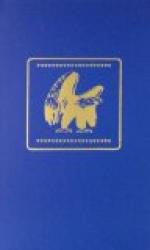But Pliny, notwithstanding his great attainments, was often a retailer of stale gossip, and in like case was Aurelius Victor, another writer who heaped much odium on her name. Again, there is a great hiatus in the Annals of Tacitus, a true historian, at the period covering the earlier days of the Empress; while Suetonius, bitter as he may be, is little more than an anecdotist. Juvenal, another of her detractors, is a prejudiced witness, for he started out to satirize female vice, and naturally aimed at high places. Dio also tells of Messalina’s misdeeds, but his work is under the same limitations as that of Suetonius. Furthermore, none but Pliny mentions the excess under consideration.
However, “where there is much smoke there must be a little fire,” and based upon the superimposed testimony of the writers of the period, there appears little doubt but that Messalina was a nymphomaniac, that she prostituted herself in the public stews, naked, and with gilded nipples, and that she did actually marry her chief adulterer, Silius, while Claudius was absent at Ostia, and that the wedding was consummated in the presence of a concourse of witnesses. This was “the straw that broke the camel’s back.” Claudius hastened back to Rome, Silius was dispatched, and Messalina, lacking the will-power to destroy herself, was killed when an officer ran a sword through her abdomen, just as it appeared that Claudius was about to relent.
“Then spake ye damned windmill, sir Walter”
Raleigh is thoroughly in character here; this observation is quite in keeping with the general veracity of his account of his travels in Guiana, one of the most mendacious accounts of adventure ever told. Naturally, the scholarly researches of Westermarck have failed to discover this people; perhaps Lady Helen might best be protected among the Jibaros of Ecuador, where the men marry when approaching forty.
Ben Jonson in his Conversations observed “That Sr. W. Raughlye esteemed more of fame than of conscience.”
YE VIRGIN QUEENE
Grave historians have debated for centuries the pretensions of Elizabeth to the title, “The Virgin Queen,” and it is utterly impossible to dispose of the issue in a note. However, the weight of opinion appears to be in the negative. Many and great were the difficulties attending the marriage of a Protestant princess in those troublous times, and Elizabeth finally announced that she would become wedded to the English nation, and she wore a ring in token thereof until her death. However, more or less open liaisons with Essex and Leicester, as well as a host of lesser courtiers, her ardent temperament, and her imperious temper, are indications that cannot be denied in determining any estimate upon the point in question.
Ben Jonson in his Conversations with William Drummond of Hawthornden says,




